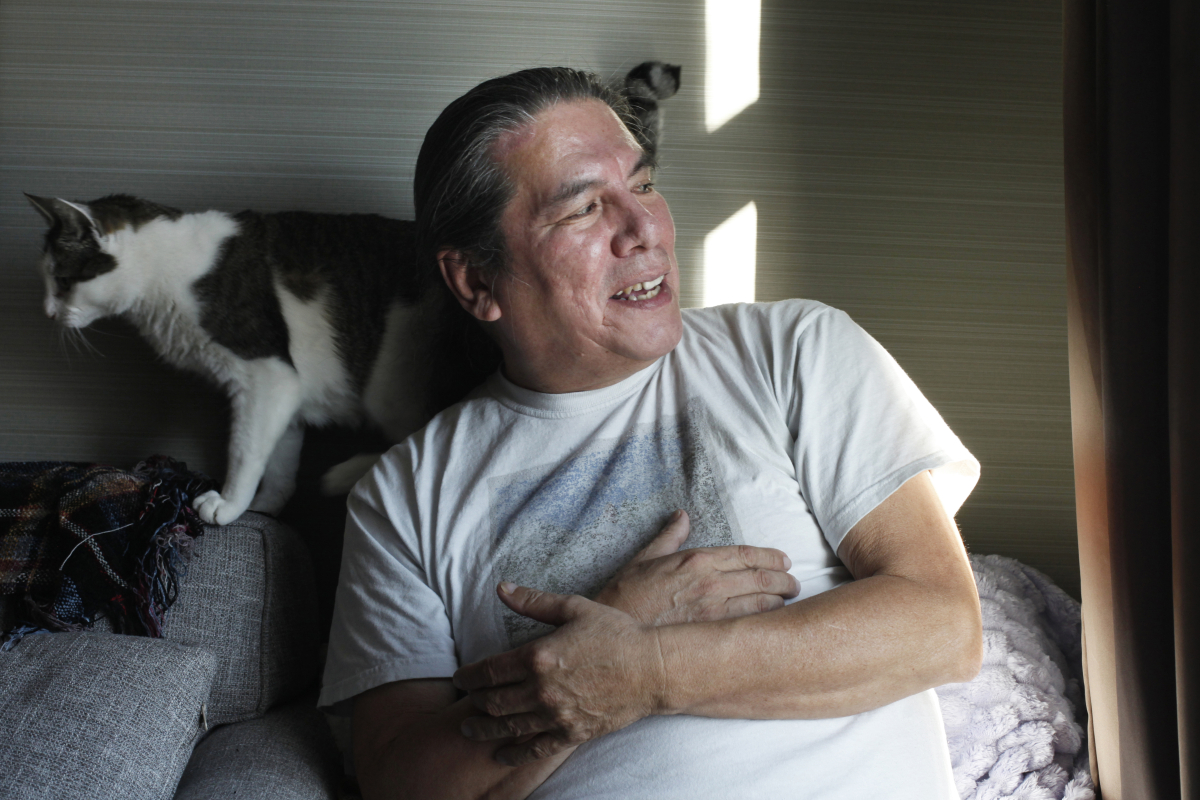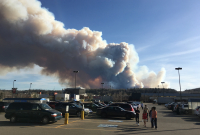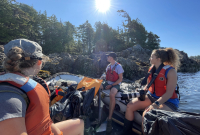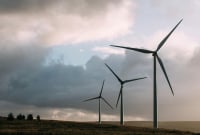A year ago, a wildfire tore through a First Nation in the interior of British Columbia, destroying 32 structures. And yet, Skwlāx te Secwepemcúl̓ecw is celebrating.
James Tomma, Kukpi7 (Chief) of the First Nation that sits around 60 kilometres east of Kamloops, told Canada’s National Observer that there was a sense of despair right after the climate catastrophe during last year’s historic wildfire season. Skwlāx was one of more than 90 First Nations who were evacuated last year.
Tomma lost his own home to the fire. He and his brothers tried to stave the fire off of their old family home, but it too burned to the ground. Community members whose homes were also lost were housed across the region, some in towns 45 minutes away, including in nearby Kamloops and Salmon Arm.
And now, only a year since the fire, about 70 per cent of band members are living back in the community, their homes rebuilt. Even Tomma, who maintains that he will be the last band member to close a door behind him, is slated to return in December.
“I’d love to take all the accolades myself, but I’ve got to give it to everybody,” Tomma said about the team behind the rebuild.
Tomma credits his former councillor Wes Francois, whose team spearheaded the rebuild that will have completed three new subdivisions in the community within the next few months. Currently, one subdivision is finished and two others and a set of townhouses are nearing completion, Tomma said.
Those homes will not be what Tomma calls “forever homes” for the community members. The new subdivision is part of Francois’ rapid housing initiative and are temporary modular homes, built quickly to get people back on the land.
They’ll stand until “forever homes” are built. And once that day comes, the modular units will be used to increase housing capacity in Skwlāx.
For Tomma, it’s been a long road — but he's finally smiling again since Dancing Fawn II, the newest subdivision, finished construction. That sense of joy was shared at the ceremony as elders and band members were also smiling “and acknowledging that we’re still here.”
However, Tomma recognizes that traumatic wildfire memories will linger for the rest of their lives. Tomma himself speaks from experience, as the night of the fire, he was unsure he was going to make it out alive.
Even now, as drought conditions persist, thunderstorms have sparked spot fires near the community. The smoke and the fires led to Tomma’s phone ringing from his people, worried and concerned.
“The trauma is still there from what happened to us,” Tomma said.
Still, the community is resilient in the face of climate catastrophe. The rebuild shows that “when a community can get together and really believes, not only in themselves but in leadership and administration, exactly what can be accomplished,” Tomma said.
Matteo Cimellaro / Canada’s National Observer / Local Journalism Initiative






Comments